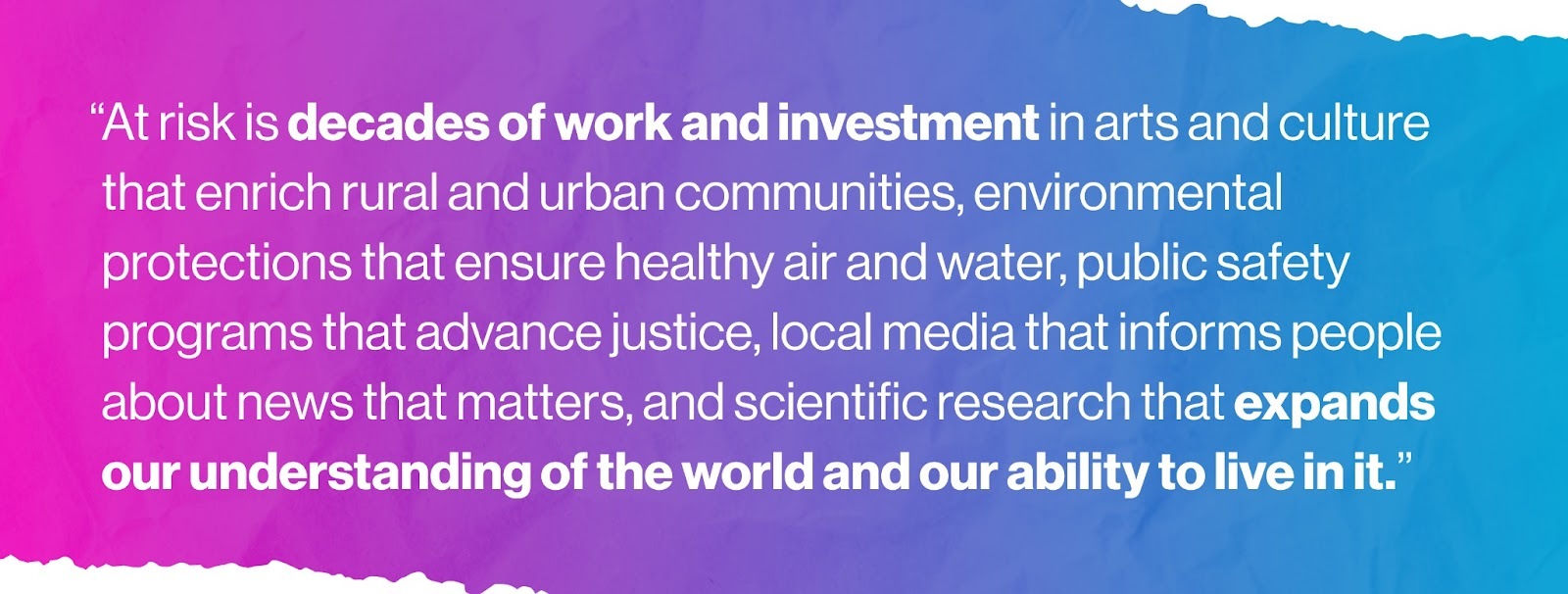.jpg)
In an outcomes-driven culture, data is an invaluable tool for measuring and driving progress. Educational data has long been the cornerstone of establishing accountability, identifying successes and opportunities, and showcasing a more accurate, collaborative, and holistic picture of the state of learning and student progress throughout the country. In the last few weeks, historic data across fields and departments of the federal government are systemically being altered or outright removed, without transparency into what is disappearing or why. Data sets from across education, public health, and climate are all at risk. If these trends continue in education, researchers, policymakers, school districts, and families could lose the ability to track education reforms, assess student outcomes, align education with workforce needs, allocate special education resources effectively, and maintain accreditation and compliance efforts. In the current climate, the federal government hasn’t shown inclination to safeguard these publicly available data sets–so who will step up to ensure it isn’t lost forever?
.jpg)
Philanthropy as a social good is more urgent than ever. As organizations face significant federal funding cuts, philanthropies have the opportunity to provide money and access to broader networks that enable widespread data preservation efforts. Prioritizing archival efforts will require resources, and the devastating impacts if we lose this data will reverberate for decades. Philanthropic investments have long served as an important ‘gap filler’ for critical national and global emergencies: think work undertaken to find a vaccine for COVID-19, provide funding in our public school systems, or invest in diverse data sets for emerging technology. The MacArthur Foundation, in response to the dramatic current divestment in federal programs, recently put a stake in the ground around their own social investments, and made a call to action for other like-minded philanthropies:

Data preservation cannot succeed through philanthropic, institutional, and non-profit efforts alone—it requires coordinated grassroots participation. Citizen volunteer initiatives have already proven effective, as demonstrated by collaborative projects between the National Archives and Records Administration (NARA), public libraries, and organizations such as Our Data Bodies. The "Blueprint for Change: Archivists for Digital Security Practices" offers a guide for how individual contributions can be coordinated into powerful collective action.
For people wondering how to contribute individually, the path begins with advocacy. Contacting state and federal representatives to emphasize the critical importance of data preservation is a central element of these efforts (click HERE for an email and phone call template). The site 5 calls provide immediate and localized guidance to contact our federal and locally elected officials. Beyond advocacy, individuals can take direct preservation action by identifying and downloading datasets relevant to their communities and professional contexts. Using accessible tools like ArchiveBox and Internet Archive, everyday people can create personal archives of endangered information. Local organizing—through professional associations, community groups, or academic departments—can amplify these individual efforts into coordinated preservation networks. By connecting citizen efforts with institutional frameworks, we create a resilient, multi-layered system of digital preservation that protects our collective knowledge.
.png)
The preservation of vital education datasets stands at a critical juncture. With the recent mandated Department of Education workforce reduction, the integrity of these data sets are increasingly at risk, the responsibility will fall to a coalition of philanthropic organizations, academic institutions, data-forward organizations, and engaged citizens to respond quickly. The cost of inaction is immeasurable for past and present students in America—decades of invaluable insights that inform policy, drive accountability, and shape the future of education could be lost forever.
At Intentional Futures (iF) we excel at solving hard challenges and putting good intentions into action and we are also navigating the various implications of data-loss for our clients and what it means for our work long-term. If you represent an organization who is interested in funding or mobilizing resources to address this challenge, we want to hear from you! Contact us via our website or write to us at info@intentionalfutures.com.